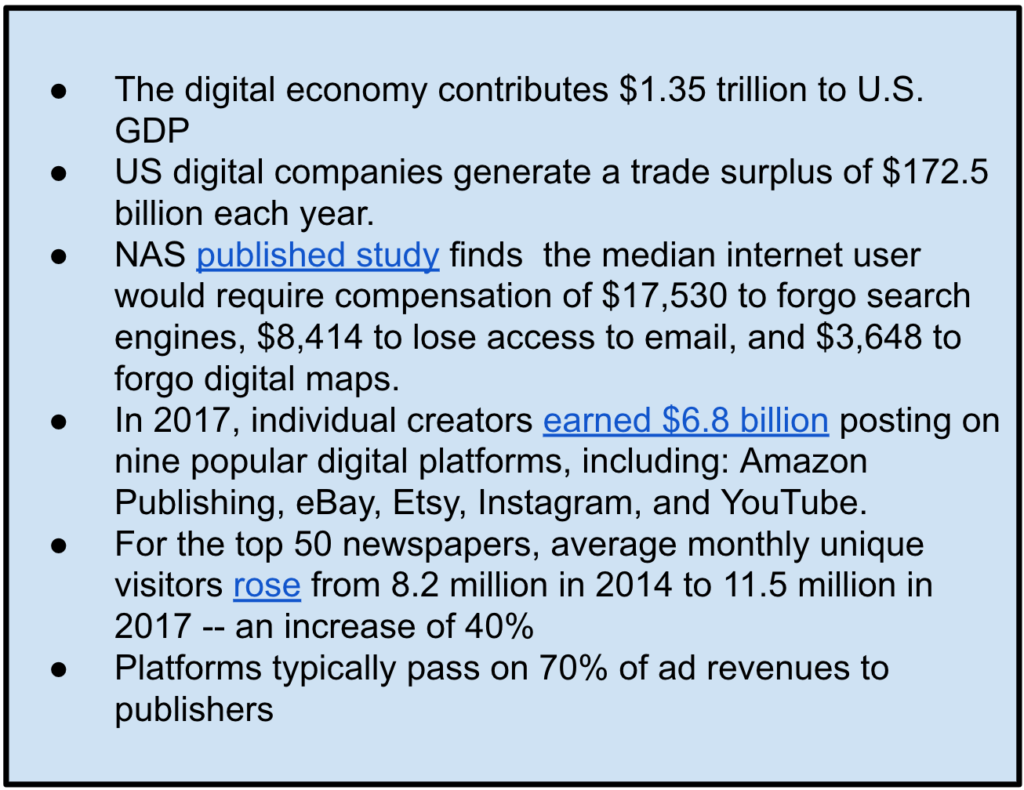CCIA VP Matt Schruers will testify before the House Judiciary Subcommittee on Antitrust: “Online Platforms and Market Power, Part 1: The Free and Diverse Press” today.
Here is a summary of what he will say:
Online digital services benefit users, media and content producers, and advertisers
- Users: Users gain greater access to information, tools to produce their own content and to easily share and discuss content, which can promote civic engagement.
- Publishers: Media outlets have expanded their reach through apps and social sharing and news website traffic rose 40 percent between 2014 and 2017. Digital services have lowered distribution costs and increased ad value for publishers, but there is more competition and niche verticals have disrupted publishers’ lucrative classified listings.
- Advertisers: Advertisers see lower costs, higher ROI, more precise ways to reach the right customers, and better metrics to evaluate whether ads are indeed working
Scrutiny of successful firms is appropriate
As the digital economy grows, led by U.S. companies, more scrutiny by regulators is to be expected. CCIA welcomes the evidence-driven discussion about the economic transformation that is happening and the firms that are driving it.
Competition law and policy in the context of digital content
- U.S. antitrust law aims to maximize consumer welfare, measured by price, quality, and innovation.
- Firewalling off policy goals other than consumer welfare from antitrust analysis has discouraged politicalization and ensured consistent application of the law.
- For antitrust purposes, markets are defined based on economic analysis of who competes with whom, rather than a subjective or arbitrary line drawing.
- Zero-cost services, such as many online business models, are not excluded from economic analysis. Economists view them as multi-sided business models, much like free broadcast radio and television and credit cards.
- While some may conceive of online services as “markets” based on a particular function such as search, economists measure who competes with whom.
- The Internet isn’t the first time a new communications medium prompted calls for an antitrust exemptions. News publishers received an exemption to deal with previous competitors like radio and TV news have not worked. The results were fewer choices for readers and less competition among news outlets.

Potential policy solutions for promoting public interest news reporting
Preserving news media production is a shared goal and the FTC considered the problem in 2009 and recommended measures that have since been proposed or implemented in other jurisdictions, such as federal tax deductions and grants to universities to conduct investigative journalism. Canada, for example, adopted a tax package to bolster journalism that included deductions for digital news subscriptions, a new tax category for nonprofit journalism, and a refundable tax credit for news organizations that produce a wide variety of news and information.